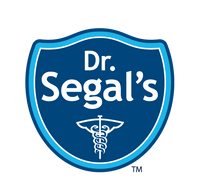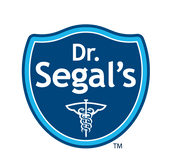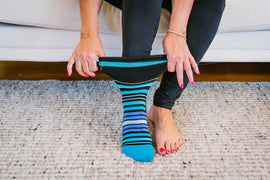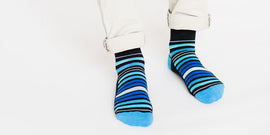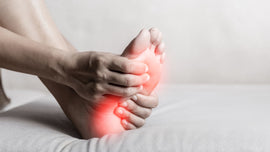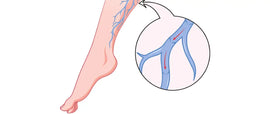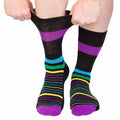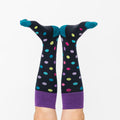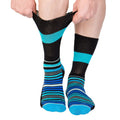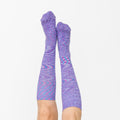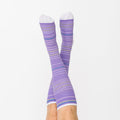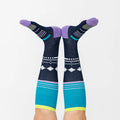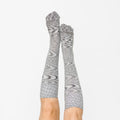Is Peanut Butter Good for You?
Posted by SIMON LIM
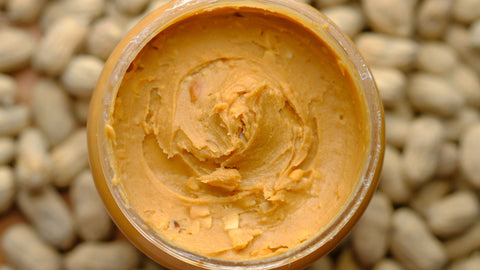
Peanut butter is a staple in many households, and it's hard to imagine life without it. But is peanut butter good for you? Peanut butter has been around since the late 1800s when Dr. John Harvey Kellogg was experimenting with different ways to make food more nutritious.
In this article, we'll look at peanut butter's health benefits and how you can get the most out of this nutritious food.
History of Peanut Butter
Peanuts have been around since at least 7500 B.C. when they were first cultivated by people living in Peru. The Incas ate raw peanuts or ground them into flour. They also made drinks out of roasted peanuts and used their oil as fuel for lamps.
By the time Europeans reached South America, Native Americans were eating peanuts regularly. Spanish explorers brought them back home with them and other foods from the New World, like potatoes, tomatoes, and corn.
It wasn't until 1884 that peanut butter was invented. Marcellus Gilmore Edson of Canada patented peanut paste after grinding roasted peanuts between two heated surfaces. In 1895 the process of making peanut butter was patented by Dr. John Harvey Kellogg. He called it "nut butter," but we know it as peanut butter.
Later on, a St. Louis physician is believed to have developed a version of peanut butter as a protein substitute. It was given to their older patients who had poor teeth and couldn't chew meat. Peanut butter debuted in the United States at the St. Louis World's Fair. It became a source of delicious protein during the first two world wars when the U.S. Armed Forces adopted it as part of their rations.
During World War II, peanut butter and jelly sandwiches became popularized. It is believed that it was first introduced by mothers who served them to their children on white bread during school lunches. It was an inexpensive way to eat healthy after meat rationing went into effect in 1942.
Peanut Butter - The Nutritional Facts
Peanut butter, the breakfast table staple, and classic comfort food, has long been known for their health benefits. Peanuts are rich in protein and fiber and low in calories. It contains vitamins B3, B5, B6, E, and folate. They also contain potassium, magnesium, iron, calcium, and zinc. All these nutrients are essential to good nutrition and overall health.
Health Benefits of Peanut Butter
Peanut butter is an all time favorite treat, and for good reason. It's delicious, of course, but it also has some great health benefits!
Peanut butter has been shown to help regulate hunger and promote weight loss. In fact, a study showed that those who eat nuts, including peanut butter, tend to have lower BMIs than those who don't.
But peanut butter isn't just good for your waistline, it can also help improve your heart health. Peanut butter contains niacin (B3), which helps maintain healthy cholesterol levels. It also helps reduce the risk of heart disease by lowering triglycerides. Peanut butter has folate (B9), which reduces the risk of birth defects in fetuses.
Peanuts are rich in protein, essential for building and repairing cells, muscles, and tissues. They're also high in fiber, which can help lower LDL or "bad" cholesterol levels while boosting HDL or "good" cholesterol levels. This helps prevent plaque from building up on artery walls, which can lead to heart attacks or strokes. Fiber also helps keep blood sugar levels steady, so you feel full longer after eating meals with peanuts as part of them!
Adding Peanut Butter to Your Diet
Peanut butter is a staple in many people's diets. It's delicious, it's healthy, and it's versatile. But it can be tough to fit into your diet if you're trying to be mindful of your caloric intake or have a peanut allergy.
Here are some tips for including peanut butter in your diet without going overboard on calories:
Breakfast:
- Spread on whole wheat bread with banana slices
- Mix with oats for an energy-packed breakfast cereal
- Add some honey for a simple but satisfying morning meal
Lunch/Dinner:
- Add to stir fry for a tasty alternative to meat
- Toss into salads for added crunch and protein
- Use as a dip for fresh vegetables
Considerations
There's nothing better than a good peanut butter snack. And there's no better way to start your day than with a peanut butter and jelly sandwich. But picking the right kind of peanut butter can be confusing. There are so many choices, and they all seem to promise the same thing: healthy goodness!
Well, don't be fooled. Not all peanut butter is created equal. Here's what you need to know:
- Look at the ingredients list. The first ingredient should be peanuts or roasted peanuts, not sugar or oils.
- Avoid hydrogenated oil or partially hydrogenated oil. These types of oil can increase cholesterol levels in your body and lead to heart disease and stroke.
- Avoid high fructose corn syrup, which is used in many processed foods as a sweetener and preservative. These compounds have been shown to negatively impact blood sugar levels and contribute to weight gain over time.
Takeaways
Is peanut butter good for you? Absolutely! Peanut butter is a delicious and nutritious food that is loaded with protein and healthy fats, making it a fantastic option to help you feel fuller for longer and maintain a healthy weight. It's also incredibly convenient - you can spread it on toast, enjoy it straight from the jar, or incorporate it into your favorite recipes without any additional preparation or cooking.
However, it's important to be mindful of the type of peanut butter you choose. Some peanut butters may be highly processed and contain unhealthy ingredients, such as added sugars and oils. To ensure you're getting the most nutritious peanut butter, look for all-natural and minimally processed options, or better yet, make your own peanut butter at home using only peanuts and a pinch of salt.
Peanut butter is enjoyed by people of all ages, from kids to adults, so feel free to indulge in your peanut butter cravings. Just make sure to choose a high-quality, nutritious option for the best benefits.
SHARE:

